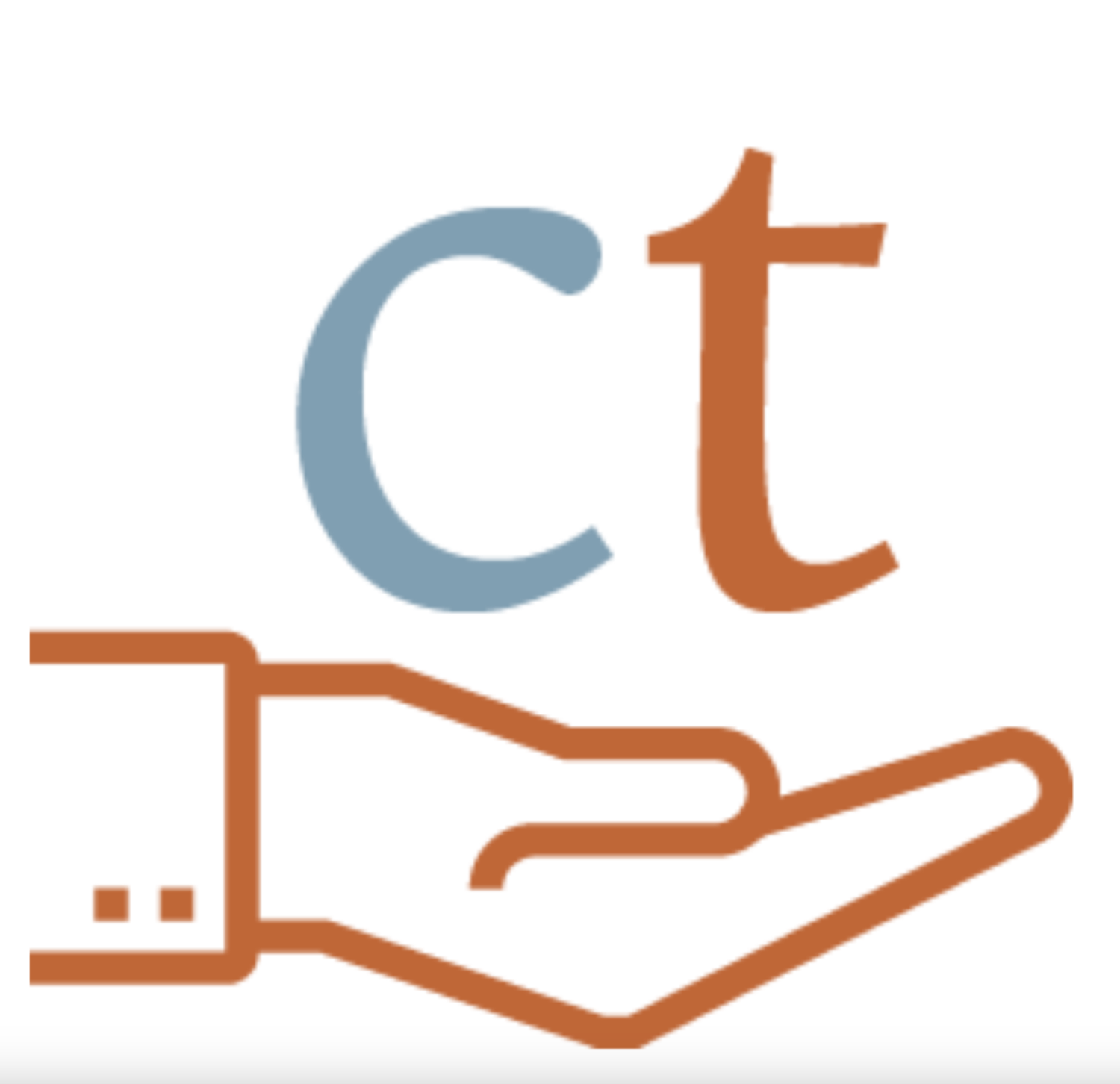Monthly Training Series
Beyond Avoidance: Integrating ACT, Self-Compassion, and Exposure for Anxiety, OCD, and Perfectionism
-

Ready to transform your client sessions?
Choose your plan
$49
1 Live Training Only
Includes:
1 Live 90-Minute Training
$234
($300 Value)
6- month Training Series Package
Includes:
6 Live 90-Minute Monthly Trainings
$400
($450 Value)
3- month Training and Consultation Package
Includes:
3 Live 90-Minute Monthly Trainings
6 Bi-Weekly Consultation Groups (meets every other Wednesday from 12:00pm - 1:30pm PST)
$825
($900 Value)
6- month Training and Consultation Package
Includes:
6 Live 90-Minute Monthly Trainings
12 Bi-Weekly Consultation Groups (meets every other Wednesday from 12:00pm - 1:30pm PST)
$1,650
($1800 Value)
12- month Training and Consultation Package
Includes:
12 Live 90-Minute Monthly Trainings
24 Bi-Weekly Consultation Groups (meets every other Wednesday from 12:00pm - 1:30pm PST)
BONUS Add-On:
Enhance your experience with access to our recorded training “Integrating ACT + ERP to Live Well with OCD”. Add this to any package above for an additional $49 ($125 Value) and enjoy on-demand access*. Perfect for learning at your own pace!
*90-day access
Insecure about implementing Acceptance and Commitment Therapy (ACT), or wonder how to blend its principles with Exposure (ERP) seamlessly? Struggling to manage the avoidance and rigidity that characterize high-functioning perfectionism? Wondering how to introduce Self-Compassion skills so they don't sound like "fluffy" self-help, but rather a powerful, evidence-based antidote to avoidance?
Suppose you answered yes to any of these. In that case, this training series on integrating ACT, Self-Compassion, and Exposure will give you the confidence, clarity, and competence you need to help your most challenging anxiety, OCD, and perfectionism clients.
Overall Goal: To equip clinicians with the knowledge and practical skills to seamlessly integrate ACT, Self-Compassion, and ERP/Exposure Therapy to enhance treatment outcomes for clients with chronic anxiety, OCD, and perfectionism.
Dates: Third Friday of every month
Time: All dates held from 9:00am - 10:30am (Pacific), 12:00pm - 1:30pm (Eastern)
Where: All sessions held via Zoom
Cost: $49 per session- no commitment required! Sliding Scale Available. If you are interested in our consultation group or video library, check out our bundle options.
Ideal Candidates: Only fun therapists, counselors, psychologists, social workers, and coaches allowed! Bring your willingness to be active! This is an interactive session that offers opportunities for role-play and the personal application of the tools.
***ALL TRAININGS WILL BE RECORDED AND AVAILABLE FOR REPLAY FOR 90-DAYS***
November 21, 2025
Building Awareness and Identifying Underlying Patterns
This workshop provides the foundational skills necessary to effectively treat clients struggling with anxiety, OCD, and perfectionism by first mastering a functional case conceptualization. We'll move beyond surface-level symptoms to collaboratively identify the core patterns of avoidance and compulsion that maintain your client's struggle, utilizing principles from Acceptance and Commitment Therapy (ACT). You will have a practical opportunity to bring a challenging case, and together we will map out their rigid behaviors. This process centers on understanding the function of behaviors—determining whether they are workable (moving toward values) or unworkable (moving away from them)—which is the critical first step toward inspiring therapeutic change and successfully implementing ACT-consistent Exposure.
What Will You Learn?
Master Functional Case Conceptualization: Learn to analyze client behaviors (including worries, rituals, and avoidance) to determine their underlying function—what internal experience (e.g., anxiety, shame, doubt) are they attempting to avoid or control?
Identify Subtle Compulsions: Develop skills to spot the most challenging and often missed patterns, such as mental rituals in OCD (like excessive reviewing or analysis) and the control strategies that fuel perfectionism and generalized anxiety.
Create ACT-Consistent Logs: Receive a customizable log template and practice using it to collaboratively track your client's patterns of thoughts, feelings, and unworkable actions, transforming assessment into a powerful tool for client insight.
Establish Creative Hopelessness: Learn how to use this awareness-building phase to help clients recognize that their attempts to control their internal world are actually the source of their suffering, thus priming them for a willingness to engage in new, values-driven behaviors like Exposure.
Prepare for Exposure: Clearly understand how building this functional awareness is the necessary first step to designing effective, values-driven Exposure and Response Prevention (ERP) assignments later in the training series.
December 19, 2025
From Autopilot to Awareness: Cultivating Present Moment Contact
Mindfulness, in the context of this integrated training, is framed not as a relaxation technique, but as the essential skill of present-moment contact and non-judgmental awareness that fuels change. Clients with anxiety, OCD, and perfectionism are often mentally fused with worries about the future or judgments about the past; this session will equip you with practical tools to interrupt that mental "autopilot" and anchor your client's attention in the present moment. We will explore mindfulness as a core Acceptance and Commitment Therapy (ACT) process, demonstrating how it directly supports effective Exposure by allowing the client to observe fear without reacting to it, and how it is the necessary observational skill that precedes a Self-Compassionate response to suffering. You will engage in experiential exercises and learn practical, brief techniques for bringing awareness into the most distressed moments of session and daily life.
What Will You Learn?
Conceptualize Mindfulness as the essential skill for Present Moment Contact within the ACT model, moving beyond its common definition as mere relaxation.
Apply ACT Metaphors (e.g., "Passengers on the Bus") to effectively teach clients how to choose a valued direction while simultaneously making room for difficult thoughts and feelings.
Master Practical Techniques: Learn and practice formal and informal mindfulness exercises (like the 5-4-3-2-1 Grounding and Mindful Body Scan) to help clients disarm rumination and anxiety spikes.
Integrate Mindfulness with Exposure: Understand and explain how a mindful, non-judgmental stance is critical for successful Inhibitory Learning during ERP by preventing subtle avoidance behaviors.
Bridge to Self-Compassion: Clearly articulate and practice how non-judgmental awareness is the foundational first step to responding to distress with Self-Kindness rather than self-criticism.
January 16, 2026
The Willingness Switch: Making Room for Difficult Emotions to Fuel Exposure
This workshop moves beyond simply identifying emotions to cultivating a powerful willingness to experience discomfort. Clinicians will learn practical, evidence-based techniques from ACT to help clients drop the internal struggle with anxiety, doubt, and panic. We will focus on how to teach clients the difference between pain and suffering, and use metaphors and experiential exercises to increase psychological flexibility—the essential prerequisite for effective exposure work.
What Will You Learn?
Distinguish Between Pain and Suffering: Master how to conceptualize and teach clients the difference between inherent emotional pain (e.g., anxiety) and the self-inflicted suffering created by attempting to avoid or control that pain.
Apply Willingness Metaphors: Learn to use powerful ACT metaphors (e.g., "Tug-of-War with a Monster," "The Two Rules") to experientially demonstrate to clients the unworkability of the struggle.
Cultivate Acceptance Skills: Practice hands-on techniques for helping clients create physical and emotional space for difficult internal experiences rather than fighting them, which reduces fusion and rigidity.
Link Willingness to Action: Clearly understand how increasing willingness is the direct path to lowering avoidance and strengthening commitment to values-driven behaviors like Exposure and Response Prevention (ERP).
February 20, 2026
Unhooking from the Critic: Defusion Skills for Perfectionism, Worry, and Mental Compulsions
Clients with OCD, anxiety, and perfectionism are often fused with highly critical or catastrophic thoughts. This session provides hands-on methods for teaching cognitive defusion—seeing thoughts as mere words, not facts. We will specifically target subtle mental rituals (e.g., excessive reviewing, analyzing, re-assuring) and self-criticism by utilizing creative defusion techniques and exploring the Self-as-Context process to help clients view their internal experience from a broader, more flexible perspective.
What Will You Learn?
Identify Subtle Mental Rituals: Develop skills to spot the "silent" mental compulsions and cognitive avoidance strategies that maintain anxiety, OCD, and perfectionism (e.g., reviewing past interactions, trying to figure things out).
Master Creative Defusion Techniques: Learn and practice a range of experiential techniques (e.g., labeling thoughts, use of repetition, singing thoughts) to help clients unhook from the literal content of critical or catastrophic thoughts.
Target Self-Criticism with Defusion: Apply specific defusion strategies to reduce the impact of the inner critic, which is a major driver of shame and avoidance in perfectionism.
Introduce Self-as-Context: Conceptualize and teach the concept of the observing self—a stable vantage point from which clients can witness their thoughts and feelings without being defined or controlled by them.
March 20, 2026
Responding to Distress with Kindness: Advanced Self-Compassion Tools for Managing Avoidance and Shame
This training is dedicated to the core components of Self-Compassion, demonstrating how it is a powerful action and evidence-based therapeutic skill. Clinicians will learn structured exercises to replace self-criticism and shame (common drivers of avoidance in perfectionism and anxiety) with the three components of Self-Compassion: Mindfulness, Common Humanity, and Self-Kindness. We will cover how to seamlessly integrate these skills during exposure and response prevention (ERP) to increase compliance and deepen inhibitory learning.
What Will You Learn?
Structure Self-Compassion Interventions: Learn to teach and guide clients through the three essential components: Self-Kindness (active comforting), Common Humanity (normalizing suffering), and a Mindful non-judgmental stance.
Utilize the Self-Compassion Break: Master the use of brief, in-the-moment exercises (like the Self-Compassion Break) for rapidly shifting a client's response from self-criticism to kindness during moments of distress.
Differentiate and Decouple: Learn to effectively address client resistance by distinguishing Self-Compassion from concepts like self-pity or self-indulgence, framing it instead as a source of emotional strength.
Integrate Self-Compassion with Exposure: Understand how to instruct clients to apply Self-Compassion during a difficult exposure task to lower the need for avoidance/compulsion and promote better learning.
April 17, 2026
Seamless Integration: Designing and Delivering Values-Driven, Compassionate Exposure Protocols
The final training brings all six core processes of ACT, Self-Compassion, and Exposure together into a cohesive clinical approach. We will focus on the practical art of designing and troubleshooting effective Exposure and Response Prevention (ERP) protocols that are directly linked to the client’s Values and infused with Willingness and Self-Compassion. Learn how to write effective, tailored exposure scripts that target fear anduncertainty, and develop strategies for addressing common roadblocks like subtle avoidance and lack of motivation.
What Will You Learn?
Synthesize the Full Framework: Gain a clear, step-by-step model for integrating Values, Acceptance, Defusion, Self-Compassion, and Exposure into a unified, flexible treatment plan for chronic anxiety, OCD, and perfectionism.
Develop Advanced Exposure Scripts: Practice designing creative, Values-Informed Exposure Scripts that specifically target the client's most feared uncertainty and link the exposure activity directly to their purpose.
Master Troubleshooting and Pacing: Learn advanced strategies for addressing common clinical roadblocks, such as subtle or disguised avoidance behaviors, client non-compliance, and difficulty habituating to fear.
Design a Compassionate Treatment Trajectory: Understand how to structure the overall course of treatment—from initial case conceptualization (Functional Analysis) to implementation and maintenance—ensuring that treatment remains flexible, patient-centered, and aligned with a life well-lived.
May 15, 2026
TBD
June 19, 2026
TBD
July 17, 2026
TBD
ERP Workshop & Consultation Group Testimonials
Targeting Uncertainty and Values in Exposure Scripts (May 2022) :
“Your workshop was great! I will look forward to watching the video and looking at the slides…The video of your work with a client is a masterpiece. That is the best demonstration of how to do ERP that I have ever seen. Just so you know, I’ve been to a lot of trainings and watched a lot of videos over the years. I’ve watched the masters of our field work, and the video you showed us was the BEST I have ever seen.” Kim Rockwell-Evans- PhD
Consultation Group (Ongoing):
"Dr. Mazza is a gifted teacher and soulful human, and that’s a powerful combo!!" - Meg Grundy-LCSW
"I'm so glad I've gotten a chance to connect with Dr. Mazza via her consultation group. Dr. Mazza has such great knowledge and experience, and I really appreciate her warmth and the way she runs her consultation group. It's been outstanding!" John "Andy" Bradshaw-Licensed Marriage & Family Therapist






